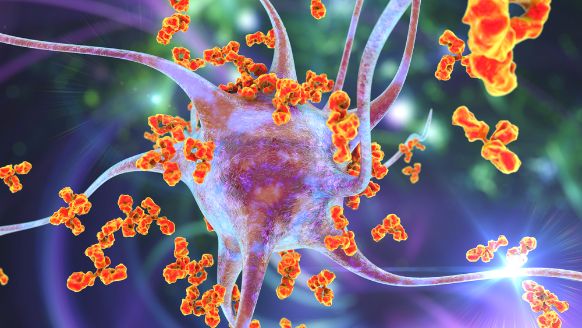The lymph system is part of the body’s immune system and protects us from infections. When a type of white blood cell called a B cell becomes abnormal it can grow and divide into cancer cells that can spread to other parts of the body. Non hodgkin’s lymphoma is the name of several types of these cancers. It is the second most common type of cancer in the lymphatic system after leukaemia. Non hodgkin’s lymphoma can affect people of all ages and races. There are no proven ways to prevent it but people with a weakened immune system who have had an infection like Epstein-Barr virus or HIV can have a higher risk of getting it.
If a person is thought to have non hodgkin’s lymphoma they are usually referred to hospital for tests. A biopsy will be carried out where the affected lymph node is removed and sent away for investigation in a laboratory. The results of these will tell the doctor exactly which type of non hodgkin’s lymphoma is present and which stage it is at.
There are many different treatments for non hodgkin’s lymphoma, depending on the type and the stage of the disease. The most common treatment is chemotherapy and sometimes radiation therapy. Other treatments include monoclonal antibody therapy, vaccine therapy and immunomodulators such as lenalidomide (Revlimid).
A person may be offered a clinical trial of new types of treatment. These trials are often used in cases where a person has relapsed or the lymphoma is at an advanced stage.

If the non hodgkin’s lymphoma has only limited spread to nearby lymph nodes (indolent stage II, III or IV) then a watchful waiting approach may be taken. This means that the patient will be monitored closely and any signs or symptoms that appear will be treated as they happen.
For more advanced stages of non hodgkin’s lymphoma doctors will use a combination of treatments to try to destroy the cancer and stop it from returning. This includes chemotherapy, radiotherapy and sometimes stem cell transplant.
Stem cell transplant involves taking healthy stem cells from the blood and then giving them back to the patient, so that their own immune cells can attack any cancer cells that are left. This is an important treatment for people who have relapsed or the lymphoma has come back after previous treatments.
The risk of side effects after treatment can increase with certain types of chemotherapy. These are called late effects and can include problems such as numbness or nerve damage. It is important to talk to your doctor about the possible side effects from your treatment and plan for them.
This article is adapted from PDQ®, the National Cancer Institute’s comprehensive cancer information database. PDQ® summaries are reviewed and written by health care professionals but are intended to help patients, families and caregivers understand complex medical topics. The PDQ® summaries are available for free on the NCI website. There are versions for both health professionals and patients, and most are also available in Spanish.








